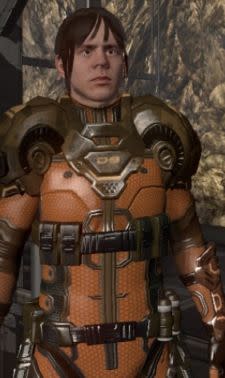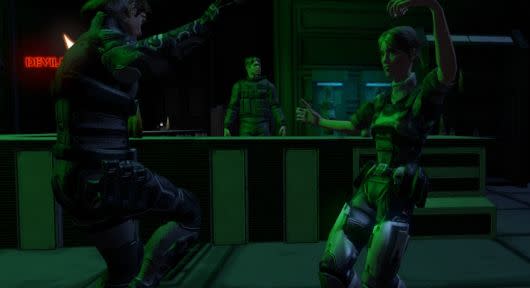PAX East 2014: The Repopulation's Josh Hall on the future of the game
If you're looking for Kickstarter success stories, The Repopulation definitely qualifies. While the game hasn't yet been released, it's managed to run not one but two successful campaigns looking to fans for funding, and it's managed its development carefully to keep itself on track for release. The game feels like a well-managed professional affair. And it's been a bit more quiet, but that comes down largely to the focus on getting the game out of its current alpha state and into its first beta.
At this year's PAX East, I sat down to talk with Josh Hall, one of the core team members on the project, about where the game is in development and what it's heading for in the next few months. While the final alpha stage has taken slightly longer than originally planned, the team is on track for launching the first beta phase at some point over the summer, and it's eyeing further release plans.

So what comes after beta? Early access via Steam Greenlight is on the agenda, but it comes with the caveat that it's important to get backers in and experienced with the game first. The team at Above and Beyond Technologies is very conscious of how important it is to keep backers feeling special; early access has to be a second priority, likely to come in during the late beta testing stages if not later.
The team is also working hard to get more functionality and features into the client, a challenge with a small team and a small budget. The game's first Kickstarter campaign was aimed at covering the core functionality to the game and making sure that it would at least work, while the second campaign very much emphasized expanding beyond the core and extending some parts of the gameplay. It also helped set the development budget for the remainder of the year, an important element when making a large game as part of a small independent studio.
And the field is getting more crowded, without a doubt; more sandbox titles are cropping up, and several of the features that looked more unique when the game's first Kickstarter launched have started showing up in other titles. It's a mixed blessing for The Repopulation as a whole. On the up side, it means that there's more competition, but it also means that more people are receptive and eager to see what the team can do within its established plans.
Hall stressed that the team has been very focused on trying to create a world in which players have more options about building their characters and experimenting with new things rather than being locked into a single way to play. As he sees it, it's all about developing a large base of potential players with an MMO rather than creating a narrow range of satisfied players and throngs of disenfranchised spectators.
So how hard is it to work with a smaller team? The biggest problem simply comes from getting the word out. MMOs are big and expensive projects, and less budget means less PR, fewer releases, and more chance of fading from people's viewpoint. It also means looking for dedicated people willing to work for very little money; with a studio consisting of only seven full-time members, they more or less have to be willing to put in a lot of extra work despite very low rewards.
Hall also noted that there's a bit of a benefit hidden in the game's indie status, as there's no need to make back several million dollars of investment. The bar for financial success is much lower than it would have been for a bigger-budget project, even if the team wants the gameplay to be sterling.
Parallels to Star Wars Galaxies are obvious: The game features a heavy emphasis on player-run cities and crafting, analogues to the Entertainer skill tree, and so forth. But the original design document was apparently even more focused on taking what worked in SWG and moving it into a different environment. Over time, things have shifted and the game has become far more of its own creature, with the biggest parallel to SWG coming in the form of community engagement.
That also extends to courting roleplayers and the RP crowd. While Hall stated that there's a strong component of just putting in tools and letting roleplayers use them as they wish, he also stressed that companies need to court the groups they want in their games. That's as true for roleplayers at is for dedicated PvP mavens or crafting aficionados.
So what does Hall think about the spate of Kickstarted MMOs? The main problem, he says, is that most MMOs require a budget that you simply can't acquire with a Kickstarter project. Most of the really large projects have a big name or two attached to the project; part of the point is to provide promotion and improve visibility rather than simply making a quick budget. Raising a substantial amount is complicated and unlikely to be a great plan. Not that it's impossible; after all, the game hit its goals and beyond both times. It just isn't an easy prospect, nor an assured success.
The focus of the team at Above and Beyond Technologies right now is just on developing and refining the game. At the start of the year, it was more about raising money and making sure that the game could move forward and expand; now it's all about getting the game to the point where backers can start getting their hands on it. Despite the size, Hall and his coworkers are determined to run the game professionally and effectively, to produce a game that can be played and enjoyed by a variety of different people.
If you're eager to see how that plan turned out, you haven't got much longer to wait.

Massively's on the ground in Boston during the weekend of April 11th to 13th, bringing you all the best news from PAX East 2014. Whether you're dying to know more about WildStar, Landmark, or any MMO in between, we aim to have it covered!


